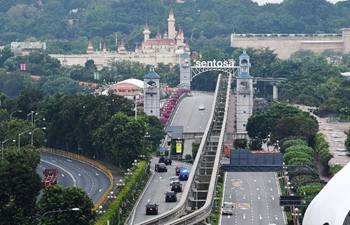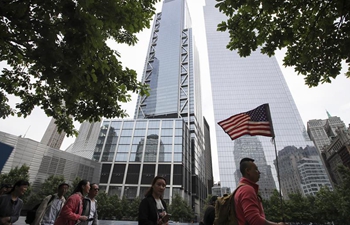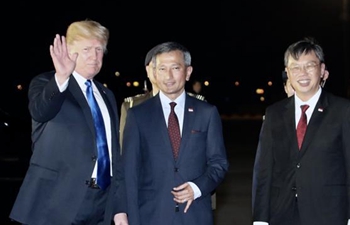CHICAGO, June 12 (Xinhua) -- Flight schedules that allow for a little carefully designed wiggle room may prevent the frustration of cascading airport delays and cancellations.
Researchers at the University of Illinois (UI) have developed models to help create schedules that are less susceptible to delays and easier to fix once disrupted by focusing on the early phases of flight schedule planning and delays at various scales.
Using historical data from U.S. airlines, the researchers constructed different models to help determine what kinds of solutions offer the most flexibility in reducing delay cascades. One set of models focuses on purely avoiding the outcomes of the worst-case delays only, and a second considers all kinds of delays that occur, from extreme to common day-to-day ones.
The researchers evaluated the various models by observing the percentage of flight delays and passenger disruptions that result from the different kinds of delays, and found that having the ability to control the less severe day-to-day types of delays results in the most benefit for passengers.
"It is not that one or the other model by itself gives a better solution," said Lavanya Marla, a UI industrial and enterprise systems engineering professor and lead author. "They give different solutions. The best choice depends on the patterns of evolving delays, the most relevant evaluation metrics, and on which solution aligns best with the priorities of the Department of Transportation, the passengers and the airline industry."
"The key to enhancing the performance of complex and uncertain systems like those in aviation often lies in intelligently combining sophisticated mathematical models, careful attention to real-world data, and detailed simulation tools for system evaluation," said Cynthia Barnhart, chancellor and a professor of engineering at the Massachusetts Institute of Technology.
Passenger and resource re-accommodation in the wake of a flight delay costs the airlines billions of dollars each year. A reduction in delays, cancellations and their cascading downstream impacts would greatly benefit the U.S. airline industry and travelers, the researchers said.
The study has been published in the journal Computers and Operations Research.













